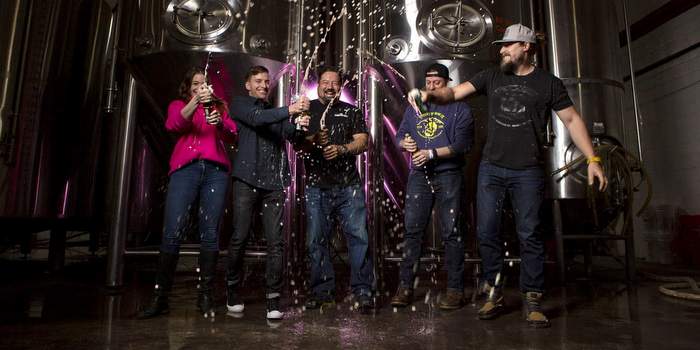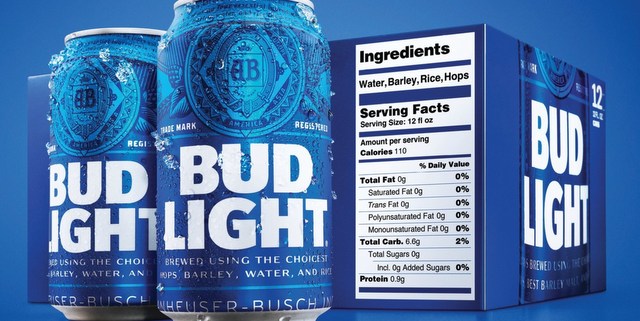
As a brewer ramps up production, sales and marketing in response to growing demand, the founders (and the group of close associates who helped the founders in the earliest stages of the business) will no longer be able to cover all of the work by themselves. The brewer will need to hire new employees to handle an ever-expanding list of tasks. In turn, this will create several new legal issues, as the employment relationship is nearly as heavily-regulated, both by state and federal law, as the sale of alcohol (depending on what state the brewer operates in — and we’re looking at you, Massachusetts and California — it may be even more heavily regulated). To continue to thrive, a brewer must be able to anticipate these challenges and develop a plan to meet them. Six of the top employment law issues for growing brewer are as follows.
1. Independent Contractors vs. Employees
Just as ales and lagers constitute the two major classifications of beer, workers can be classified as either employees or independent contractors. In general, the default rule is that a worker should be classified as an employee (and thus subject to various statutory protections and requirements). In some cases, however, where specific criteria are satisfied (most of which involve the ability of the individual to control the manner and means of providing services, rather than the company), a worker may be classified as an independent contractor. Great care should be taken, however, as misclassification of a worker as an independent contractor could lead to significant tax and other penalties.
2. Overtime
Federal and, in many cases, state law require premium pay for employees who work more than 40 hours in a week, unless the employee falls under a specific statutory exemption. Many employers (and employees) mistakenly believe that paying an employee a fixed salary removes the obligation to provide overtime pay. But this is only one aspect of the statutory exemption. The employee must also be performing certain tasks to qualify for the exemption from overtime pay. As with the independent contractor/employee classification issue, misclassifying an employee as exempt, and therefore not providing overtime pay, could lead to significant financial penalties.
3. Statutory Coverage
With an expanding workforce comes expanding legal obligations. Many employment law statutes impose obligations based on the size of a business. For example, the Americans with Disabilities Act (a federal statute) applies to business with 15 or more employees (state anti-discrimination laws often cover business of even smaller size). Once a business crosses this threshold, it will have a duty, among others, to provide “reasonable accommodations” to qualifying employees (that is, a change in the job that would allow a disabled employee to perform the essential functions of that job).
4. Trade Secret Protection
As more and more employees come to work, more and more people become exposed to the brewer’s secrets (such as recipes and brewing methods) that make the end product so unique. To protect against the loss of this crucial information, a brewer may want to consider having employees sign a confidentiality or non-disclosure agreement. In addition, a brewer should limit access to its most sensitive information to those with a specific need-to-know.
5. Communicating Expectations
As the workforce grows, management must remain mindful of the need to communicate performance expectations clearly, and to hold employees to the same standards. Though often stemming from a good-natured desire to spare an employee’s feelings or to avoid confrontation, not providing honest and timely feedback to an underperforming employee could lead to legal troubles down the road. If an employee is terminated for poor performance, he or she may try to deflect blame and point to the lack of prior feedback to suggest that some other, unlawful reason is the true motive behind the decision.
6. Termination Requirements
Even as the employment relationship ends, the brewer must meet certain legal obligations to ensure that the ending is, in fact, clean. For example, state wage laws often define when an employee must receive his or her final paycheck (in some states, it is on the day of termination, even if that is not a regular payday), and state law also determines whether an employee is to receive payment for any unused vacation or other paid time off. In addition, if the brewer offers health insurance, it will need to provide eligible employees with information on how to continue their coverage through COBRA.
As any expanding brewer can attest, growing a business is not as simple as finding more people to buy beer. Developing and managing a workforce can be one of the most challenging aspects of managing growth, and it can present a near minefield of regulatory and compliance issues to navigate. With careful attention, however, these issues can be addressed, which will allow for a greater focus on what is most important: making delicious beer.
 Bob Young, a lawyer at Bowditch & Dewey, has given considerable thought to employment issues facing breweries as they grow in size. He has litigated disputes in state and federal courts, as well as administrative agencies. He counsels clients in matters outside of litigation, including the negotiation of agreements, medical leaves, and accommodation requests, as well as employee discipline and termination matters.
Bob Young, a lawyer at Bowditch & Dewey, has given considerable thought to employment issues facing breweries as they grow in size. He has litigated disputes in state and federal courts, as well as administrative agencies. He counsels clients in matters outside of litigation, including the negotiation of agreements, medical leaves, and accommodation requests, as well as employee discipline and termination matters.





Six employment law tips for growing craft breweries from @CraftBrewingBiz http://t.co/Uh6wVIM9Bc
RT @CrowdBrewed: Six employment law tips for growing craft breweries http://t.co/Hz5I1Ap4H6 via @craftbrewingbiz #law #legal #craftbeer #br…
Six employment law tips for growing craft breweries http://t.co/1p0ObrrIXn via @craftbrewingbiz
for those brewers looking to expand
RT @CrowdBrewed: Six employment law tips for growing craft breweries http://t.co/Hz5I1Ap4H6 via @craftbrewingbiz #law #legal #craftbeer #br…
RT @CrowdBrewed: Six employment law tips for growing craft breweries http://t.co/Hz5I1Ap4H6 via @craftbrewingbiz #law #legal #craftbeer #br…
RT @CrowdBrewed: Six employment law tips for growing craft breweries http://t.co/Hz5I1Ap4H6 via @craftbrewingbiz #law #legal #craftbeer #br…
Six employment law tips for growing craft breweries http://t.co/Hz5I1Ap4H6 via @craftbrewingbiz #law #legal #craftbeer #brewery #beer
Employment law tips for craft breweries…#craftbeer http://t.co/dN3lDfjNIv
Todd Krueger liked this on Facebook.
Regnier Insurance for Wineries & Breweries liked this on Facebook.
RT @Buffalo_Theory: Six employment law tips for growing craft breweries http://t.co/OWi8Yw6EwU
RT @CraftBrewingBiz: Six employment law tips for growing craft breweries: http://t.co/4e5zEq84Wc
Jared Read liked this on Facebook.
Six employment law tips for growing craft breweries http://t.co/OWi8Yw6EwU
Six employment law tips for growing craft breweries #craftbeer
http://t.co/s2oLOi4vML